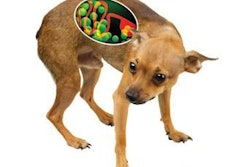The domestication of dogs was an important episode in the development of human civilization. The precise timing and location of this event is debated, and little is known about the genetic changes that accompanied the transformation of ancient wolves into domestic dogs.
We conducted whole-genome resequencing of dogs and wolves to identify 3.8 million genetic variants used to identify 36 genomic regions that probably represent targets for selection during dog domestication. Nineteen of these regions contain genes important in brain function, eight of which belong to nervous system development pathways and potentially underlie behavioral changes central to dog domestication.
Ten genes with key roles in starch digestion and fat metabolism also show signals of selection. We identified candidate mutations in key genes and provide functional support for an increased starch digestion in dogs relative to wolves. Results indicated that novel adaptations allowing the early ancestors of modern dogs to thrive on a diet rich in starch, relative to the carnivorous diet of wolves, constituted a crucial step in the early domestication of dogs.
Source : E. Axelsson et al., 2013. The genomic signature of dog domestication reveals adaptation to a starch-rich diet. Nature online January 2013. doi: 10.1038/nature11837

















